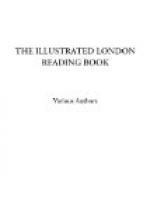We may also observe, that those compositions which we read the oftenest, and which every man of taste has got by heart, have the recommendation of simplicity, and have nothing surprising in the thought when divested of that elegance of expression and harmony of numbers with which it is cloathed. If the merit of the composition lies in a point of wit, it may strike at first; but the mind anticipates the thought in the second perusal, and is no longer affected by it. When I read an epigram of Martial, the first line recalls the whole; and I have no pleasure in repeating to myself what I know already. But each line, each word in Catullus has its merit; and I am never tired with the perusal of him. It is sufficient to rim over Cowley once; but Parnel, after the fiftieth reading, is fresh as at the first. Besides, it is with books as with women, where a certain plainness of manner and of dress is more engaging than that glare of paint and airs and apparel which may dazzle the eye but reaches not the affections. Terence is a modest and bashful beauty, to whom we grant every thing, because he assumes nothing, and whose purity and nature make a durable though not a violent impression upon us.
But refinement, as it is the less beautiful, so it is the more dangerous extreme, and what we are the aptest to fall into. Simplicity passes for dulness when it is not accompanied with great elegance and propriety. On the contrary, there is something surprising in a blaze of wit and conceit. Ordinary readers are mightily struck with it, and falsely imagine it to be the most difficult, as well as most excellent way of writing. Seneca abounds with agreeable faults, says Quinctilian—abundat dulcibus vitiis; and for that reason is the more dangerous and the more apt to pervert the taste of the young and inconsiderate.
I shall add, that the excess of refinement is now more to be guarded against than ever; because it is the extreme which men are the most apt to fall into, after learning has made great progress, and after eminent writers have appeared in every species of composition. The endeavour to please by novelty leads men wide of simplicity and nature, and fills their writings with affectation and conceit. It was thus that the age of Claudius and Nero became so much inferior to that of Augustus in taste and genius; and perhaps there are at present some symptoms of a like degeneracy of taste, in France as well as in England.
HUME.
* * * * *




